SDR vs BDR: What Are the Differences Between Them?
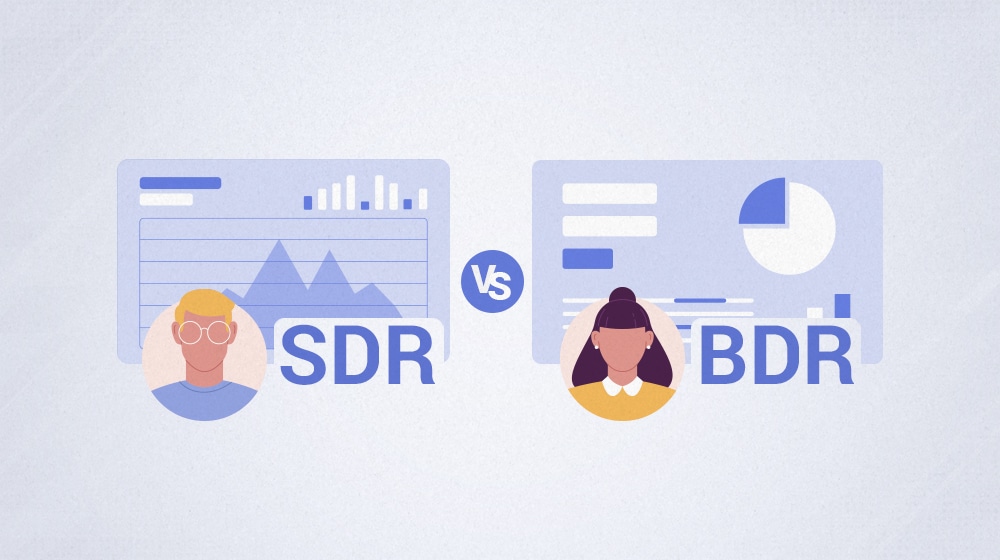
The business world is packed full of acronyms and buzzwords, most of which have at least some amount of meaning that you may need to know to do your job most effectively. One pair of acronyms that you may encounter, especially if your business is growing to the point that you have teams instead of individuals in various roles, are SDR and BDR.
What do they mean, what's the difference between them, and do you need one or both?
What do SDR and BDR Mean?
SDR and BDR are very similar; in fact, the DR is the same for both. It stands for Development Representative.
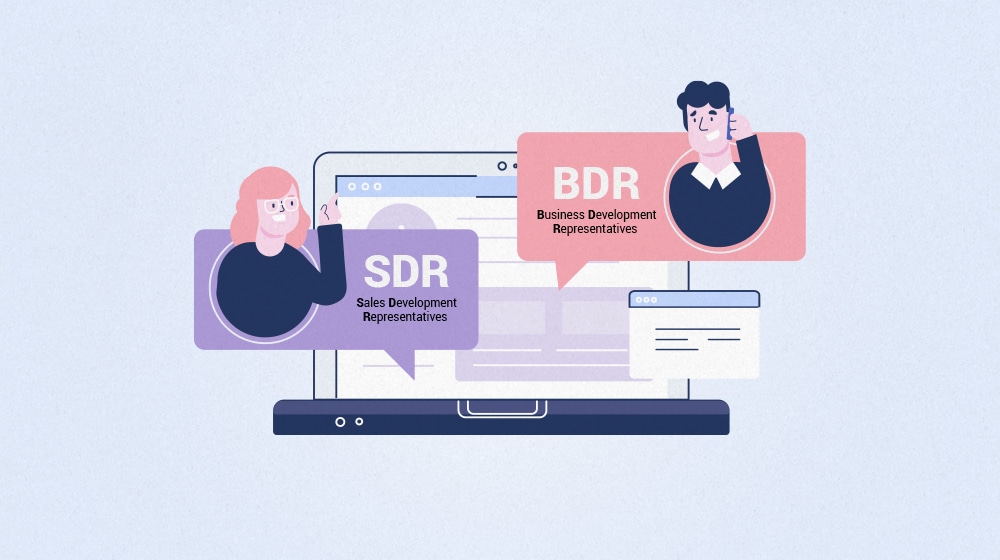
S stands for Sales, and B stands for Business. So, you have Sales Development Representatives and Business Development Representatives. Both of these can be very useful roles to have in your business, but they have a lot of potential overlap, and there's often some confusion about what each person's responsibilities may be.
Let's define each of them in more detail and discuss how they differ.
What is a Sales Development Representative and What Do They Do?
A Sales Development Representative is an employee focused on identifying, qualifying, and developing inbound leads for your business. Inbound leads are leads that reach out to you, such as through your contact forms, through a business inquiry email address, or through social media.
Often, the SDR is an individual working closely with your inbound marketing teams. They help with identifying the flow of sales funnels, developing the kinds of messaging that most resonates with potential leads, building profiles for leads to further customize things like blog and social media content to reach them, and more.
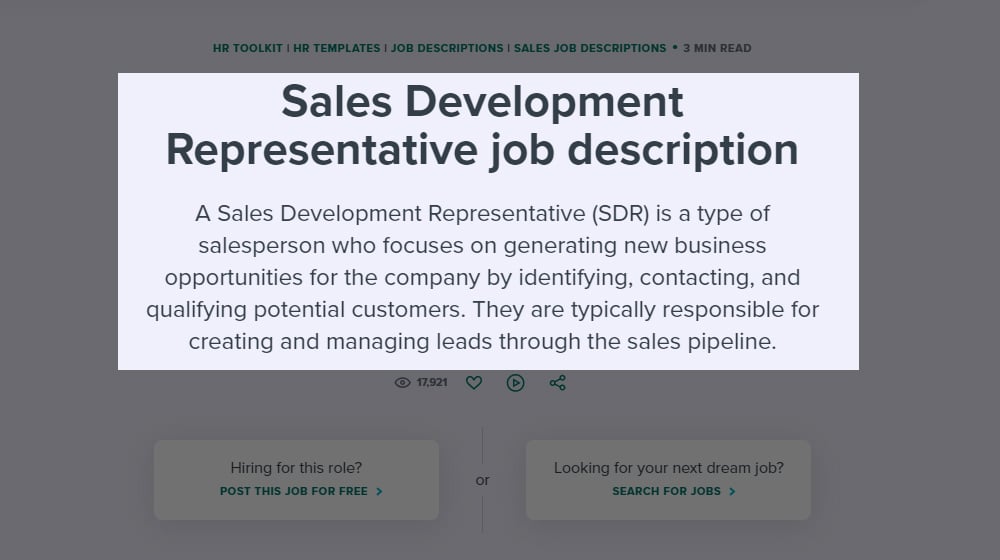
It can be important to note that SDRs are not necessarily the people actually talking to leads, trying to convert them into sales, upselling them on better packages, or closing deals. Those responsibilities often fall to the Account Executive. The Sales Development Representative takes the unfiltered contact lists and performs the first stages of sales responses, with the intent of filtering the contacts to see if they're likely to be worth pursuing or if their needs are outside the scope of what your business provides and they would be a waste of the Account Executive's time to pursue.
What is a Business Development Representative and What Do They Do?
A Business Development Representative is an employee focused on identifying, qualifying, and developing outbound leads for your business. Outbound leads are leads that you reach out to, such as via contact forms, email addresses, social media, and personal contacts.
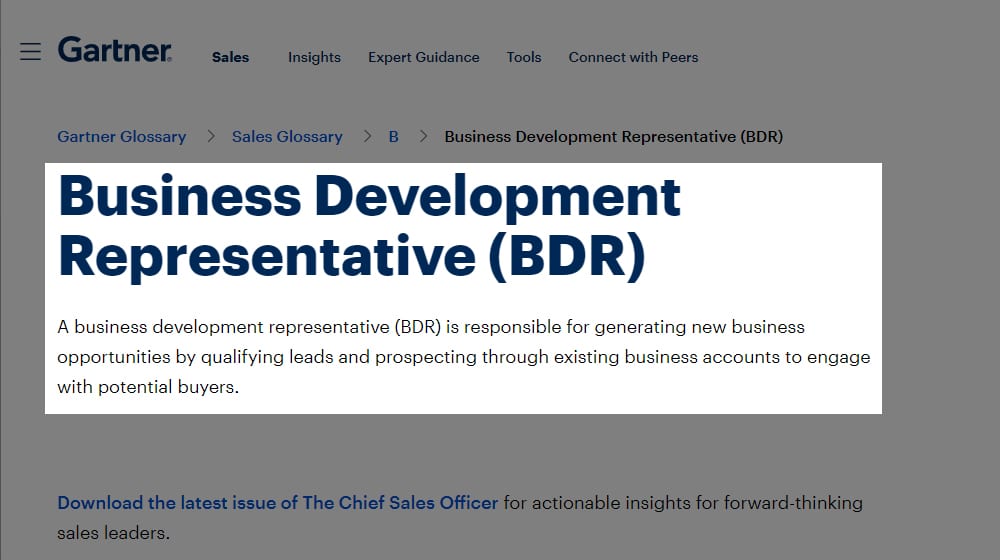
Outbound marketing is typically handled using a variety of "cold call" techniques, though the actual act of cold calling or cold emailing is relatively rare these days simply due to how often it's used by spammers and substandard service providers. Therefore, the BDR is most likely going to be spending time working with marketing teams to develop ways to identify, qualify, and "warm up" potential outbound leads.
After all, you have a much better chance of getting the attention of a potential client if that client has heard your name and seen your impact before.
The traditional view of the Business Development Representative is the salesperson who goes out to other businesses with a pitch deck and a product demo, the sales team members in an office calling numbers and asking to speak to the SDRs or AEs for that business, and similar imagery.
Exploring More Tangible Differences
So, the short version is this:
- BDRs reach out to your potential clients.
- SDRs answer when someone reaches out to you.
So, when you look at the individual kinds of relationships, conversations, and data that the SDRs and BDRs are handling, you can evaluate them on more specific terms.
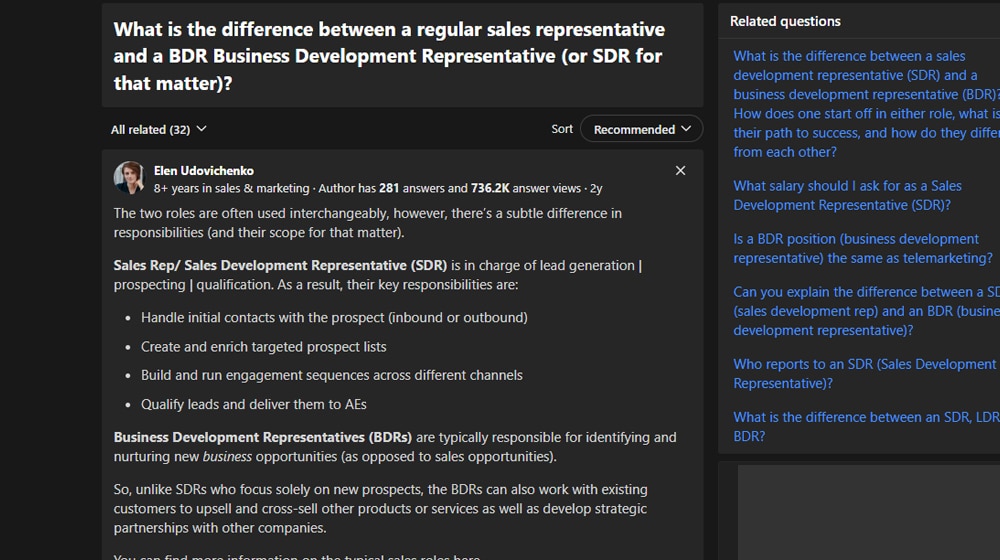
For example:
- SDRs focus on improving the average quality of leads and making sure they progress through the upper stages of the sales funnel effectively, until such time as they can be handed over to the Account Executive to put the final push on to close them. In contrast, BDRs go out and try to generate leads that can be added to lists that SDRs evaluate, or can be qualified by the BDRs directly before being passed to the AE.
- SDRs tend to have a higher quantity of leads to filter through to find the diamonds in the rough; BDRs spend more time on any individual lead, building relationships and qualifying those leads as a matter of course, because an unqualified lead isn't worth continuing to talk to on the phone.
It's wrong to say that either SDRs or BDRs focus more on building relationships or that one works more closely with the marketing teams than the other. In a robust organization, they all feed into one another's efforts. Sometimes, SDRs generate lists of potential leads that can be handed to the BDRs for outreach and qualification. Sometimes, BDRs generate lists of leads that the SDRs can focus on qualifying before handing them to the AE.
The Muddied Waters of Modern Marketing
One of the biggest challenges of defining the differences between Sales Development Representatives and Business Development Representatives is that everything I've said above is a lie.
Well, not really a lie. More like just one perspective. Take some quotes from a Reddit discussion on this exact issue: What is the difference between SDR and BDR?
- "The titles all confuse me because our reps are Senior Directors and we do everything. Prospecting, qualifying, pitching, closing, etc."
- "The difference is, One Consonant. Generally speaking they're interchangeable."
- "Most companies I've encountered see BDR as inbound and SDR as outbound. Could be different though I've seen them used interchangeably."
- "The letter in front of the DR is irrelevant. What matters is simply if you're an inbound or outbound XDR. Where I'm from an SDR is 99% of the time outbound. But the US seems to be inbound."
On top of that, Sales and Business aren't the only kinds of Development Representatives you might come across in a sufficiently large business. For example, what about a Digital Development Representative or DDR? For some organizations, a BDR might be the person handling the phones, an SDR is the person handling emails, and a DDR is the person handling social media.
Similarly, definitions can be swapped around. Many businesses I've talked to use SDR to mean inbound, and BDR to mean outbound, but in Europe, many businesses think of it the other way around; the SDR, with "sales" in the name, is more traditionally an outbound sales agent; meanwhile, the Business Development Representative develops the business by focusing on the things that come into the business.
I've also seen this vary depending on the software your business is using. Salesforce uses one framework, Zoho uses another, Zendesk uses another, HubSpot uses another. Whether or not the terminology is the same across them, or even across the different businesses using them, can vary.
On top of all of this, this is all just one definition. Other businesses and blogs have their own definitions and their own division of labor between the SDRs and the BDRs and the DDRs and any other development representatives they want to create roles for.
For example, this post defines BDRs as the people generating leads and SDRs as the people who take leads and qualify them.
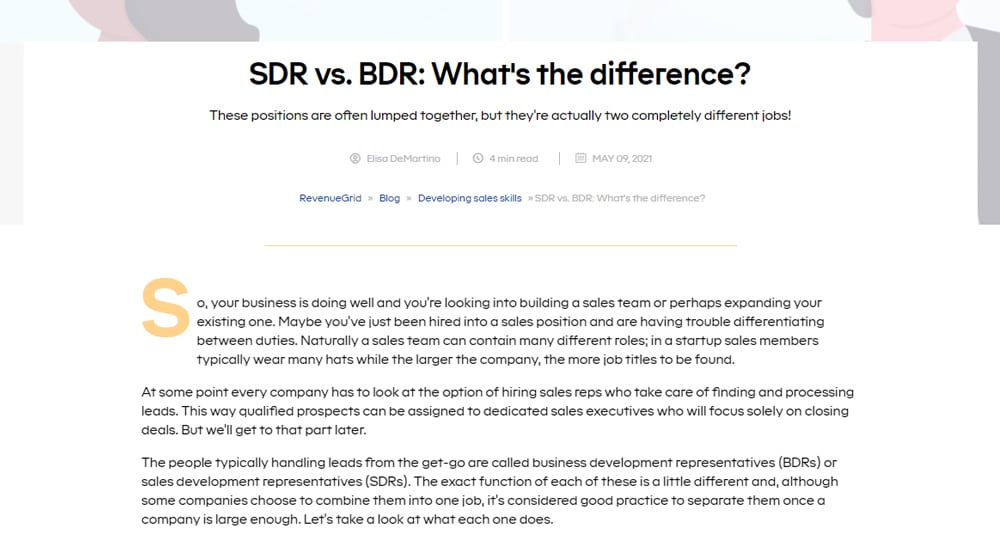
Others have an even more firm hierarchy, with BDRs doing all of the initial inbound and outbound lead generation and SDRs taking the Account Executive role and working on landing the sales or closing the deals. Or the reverse!
I've also even encountered cases where, for sufficiently large or varied companies, the Sales Development Representative is the person handling the B2C side of things, while the Business Development Representative is the person handling the B2B side of things. Truthfully, that's almost a better distinction, though, of course, that isn't reflected across the sales industry.
To an extent, this is all a side effect of the need to give everyone a fancy-sounding title that makes them feel or seem more important than they truly are. Sales Team Member or Sales Agent doesn't sound as good as Business Development Representative, right? So, the fancier title is used. It's also a way to shine up a role like sales that is often disparaged as "dialers for dollars" and other vaguely insulting descriptions.
As if all of that wasn't enough, here's a question for you. If a sales team member calls a potential client in a completely cold call but finds out later that the potential client was an avid reader of your blog for other reasons, was that truly a cold call? Would that act be classified as the act of an SDR or a BDR, and would the classification change when you find out that they knew about you in advance? What if you find out later that the potential client had sent in a form for lead generation some time ago but had been disqualified at the time?
Modern marketing is all very interconnected. As I mentioned above, cold calling is so broadly spammed and ineffective in most cases, cold emailing is so often automatically filtered into spam, and cold social media outreach isn't even allowed on the platforms half the time. There's almost no such thing as truly outbound marketing anymore, not by the standard definition. Virtually all leads need to be at least slightly warmed and qualified before they're worth spending any time on at all, but a lot of that warming and prequalification happens behind the scenes, through the development of lead generation forms, through passive marketing on social media or through blogs, and in other ways.
Which Role Does Your Business Need?
At this point, you might be asking yourself: do you need an SDR, a BDR, both, or neither?
The truth is, there's no firm roadmap here. It's not like you go from a small business with a sales director to a mid-sized business with a sales team including both an SDR and a BDR working together yet opposed, as some kind of checklist to upgrade your definition on the Fortune lists. Real life isn't that cut and dry.

The decision between SDR and BDR comes down, more than anything else, to two things.
- The common usage of the terms in your local and industrial market. If you're looking for someone to do outbound sales, figure out which term is used to refer to outbound sales in your industry and geographic area and use that. Using the other term would more likely get applicants who aren't qualified for what you want them to do.
- Which role has the better prestige and audience in career marketing? Maybe in your area, SDR is the more prestigious and less derogatory role; hiring someone as a jack-of-all-leads just needs the role title that will get the most eyes on the job opportunity, and it doesn't entirely matter which role you call it on the paperwork down the road.
Chances are, for most businesses out there, it doesn't really matter. Call the roles what you want to call them, draw the lines around job responsibilities however you like, and bend the rules to make sure everyone is satisfied with their position in the business. In all likelihood, you aren't going to be dividing your sales between inbound and outbound; you're going to have interconnected teams and groups working on marketing from every possible angle.
Put whatever words on the roles you want, and just make sure you build a team that can cover all the bases, from outbound marketing to inbound marketing, from passive lead generation to active lead generation, from lead filtering and qualifying to closing the sales and upselling or cross-selling. As long as you have a good, strong sales team, a process in place for gathering leads and qualifying them, and people who can oversee, improve, optimize, and review it all, you're in a good place to be. In a small business, this might just be one or two people; in a larger company, it might be a handful; and in the largest enterprises, it can be entire departments. It all varies.
Not the most compelling or distinctive answer, is it? The short version really comes down to another Reddit quote:
"Welcome to sales, where words are made up and job titles don't matter."



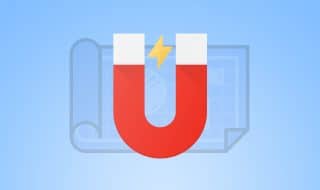

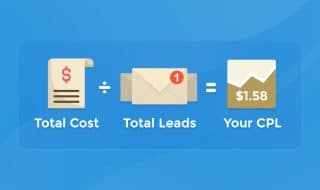


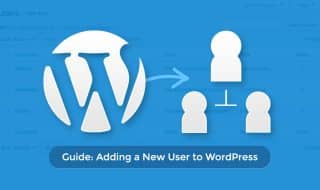

Comments